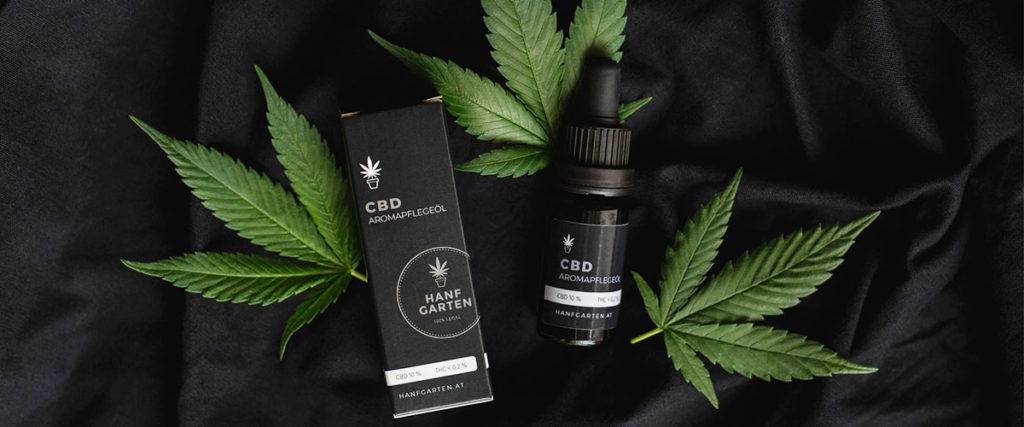Amidst a haze of stigma and doubt, CBD is making slow, but gradual progress in the medical world – and could potentially be used to treat everything from anxiety to cancer in the future.
It can sometimes be baffling when you stop and think about the number of people affected by mental health conditions around the world. In fact, a staggering 3.8% of the global population is reported to be suffering from anxiety disorders as of 2017, making it the most prevalent of all the mental health conditions.
However, it is one thing to know that statistically, about 284 million people suffered from anxiety in 2017; it is another thing to be one of them. It is said that one in 10 people get diagnosed with a mental health disorder, but the game rules change when the dice falls on you.
In the same year, 2017, a survey was conducted that found that 41% of marijuana users swapped their prescriptions for cannabis, while 40% preferred CBD, and claimed that cannabinoids were more effective for conditions like anxiety and other medical conditions.
One of the factors that led people to try CBD over treatment options like cognitive-behavioural therapies was the cost of mental health treatment, which has been a great barrier to accessing care for many years now. People suffering from anxiety, therefore, may prefer to use CBD to manage their symptoms because most health insurers don’t provide coverage for mental health conditions.

The History of CBD
In the past, people were sceptical about CBD due to its psychotropic counterpart – THC, but thanks to extensive research, health regulators today generally consider CBD to be safe.
Researchers have significantly undermined previous CBD stereotypes by proving that the compound can provide people with therapeutic benefits. In recent years, Epidiolex, an FDA-approved CBD medication, and other CBD-based drugs have been adopted to treat a plethora of health conditions such as irritable bowel syndrome, epilepsy, and psoriasis
Therefore, CBD has become a highly-versatile treatment that is significantly cheaper than traditional medication and cognitive therapies. Unlike medical marijuana, you don’t need a medical cannabis license to buy CBD-based products.
How CBD Can Support Mental Health
Research has shown that CBD can be used to effectively treat certain health conditions like cancer, Alzheimer’s, Parkinson’s, multiple sclerosis, anxiety, and depression. It can also effectively treat mental health conditions like depression, anxiety, PTSD, among other things.
For years, depression and anxiety have been the most common mental disorders. And, for the longest time, the only effective treatments have been psychotherapy and medication. But now, people are looking to complementary and alternative therapies to help with their symptoms.
Studies show that CBD may have the potential to be a fast-acting antidepressant drug. It’s believed to work in a similar way to antidepressants, in so far that it impacts how your brain’s chemical receptors respond to serotonin, the chemical that helps regulate anxiety, happiness, and mood.
While CBD doesn’t increase serotonin levels, it does slightly affect how the brain responds to the serotonin already present in your body. CBD also helps reduce PTSD symptoms. Post Traumatic Stress Disorder is characterised by symptoms like intrusive thoughts, re-experiencing traumatic events, avoidance of things that trigger memories of trauma, and nightmares.

The Journal of Alternative and Complementary Medicine published a study that showed that an oral dose of CBD oil combined with routine psychiatric treatment for PTSD helped reduce these aforementioned symptoms.
CBD is also very effective in reducing anxiety. The Permanente Journal also published a study where 79% of the participants reported a reduction in anxiety after using CBD. It’s widely agreed that CBD has anti-anxiety effects, making it effective for other anxiety conditions like Social Anxiety Disorder, Generalised Anxiety Disorder, Panic Disorder, and Obsessive-Compulsive Disorder.
How CBD works to reduce anxiety is still not clear, but many are turning to CBD oil with promising results. It is assumed to increase 2-AG, but researchers are not quite sure how. It is also believed to work by inhibiting the production of FAAH (fatty acid amide hydrolase), an enzyme responsible for breaking down anandamide and activating 5-HT1A serotonin receptors – either of which helps lower anxiety.
The Bottom Line
While CBD has proven to be effective in treating mental health conditions, we recommend seeing a mental health professional before using CBD as treatment. Self-medicating with supplements like CBD can lead to delays in your treatment or make your symptoms worse, as it has the potential to aggravate such symptoms as sleep problems, psychosis, and anxiety. Hence, it is crucial to work with a healthcare provider who can help to monitor your symptoms while on CBD.
The doctor will carefully recommend the dosage or product that is most appropriate for your condition, symptoms, and any medications you could be on. Be on the lookout for any adverse side effects, and let your doctor be aware of them before you abruptly stop taking CBD.
CBD products like tinctures, patches, and topicals don’t need direct consumption and can be a good option for those who don’t enjoy direct consumption. So be sure to discuss with your doctor what CBD form is best for you!
Related Articles
7 Surprising Benefits Of CBD Oil
Why Medical Marijuana Is Hard To Sell In Asian Countries
Heavens Please: The Startup Fighting Cannabis Stigma in Hong Kong





